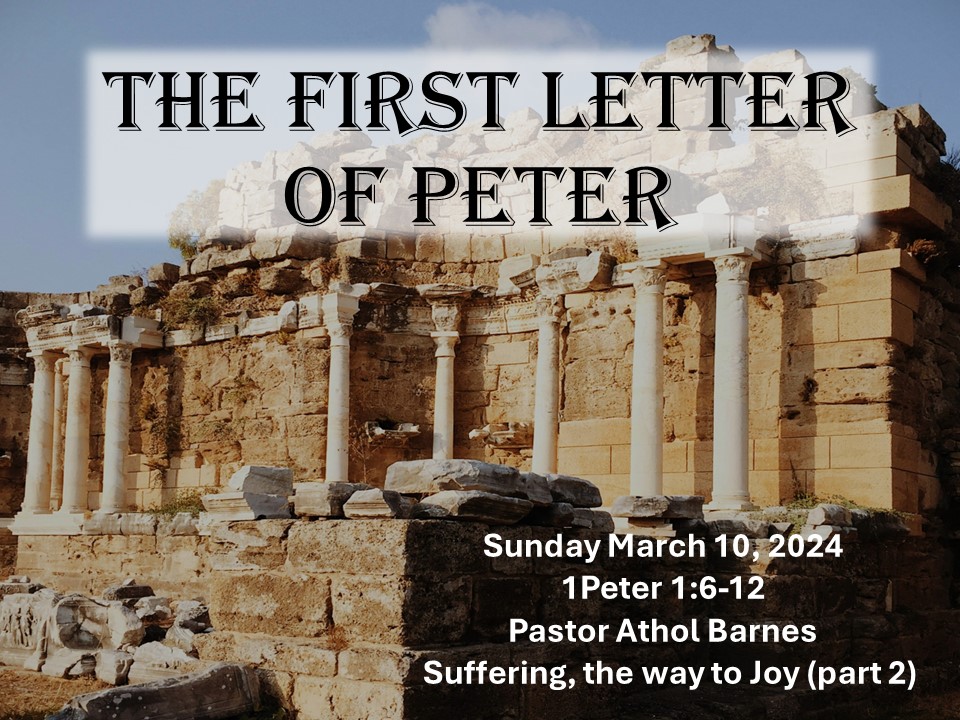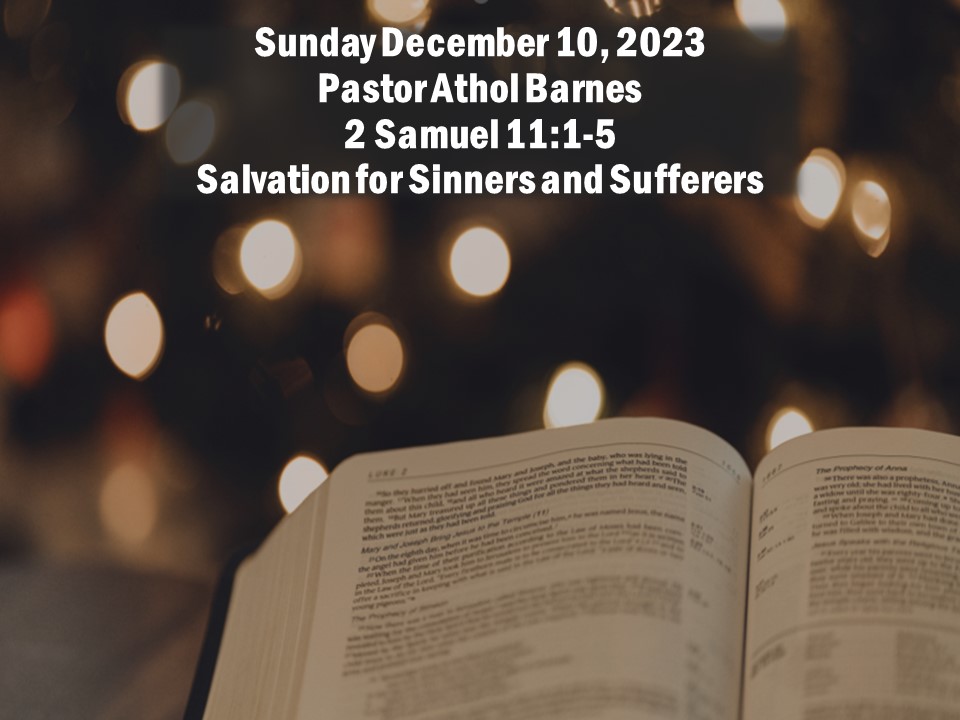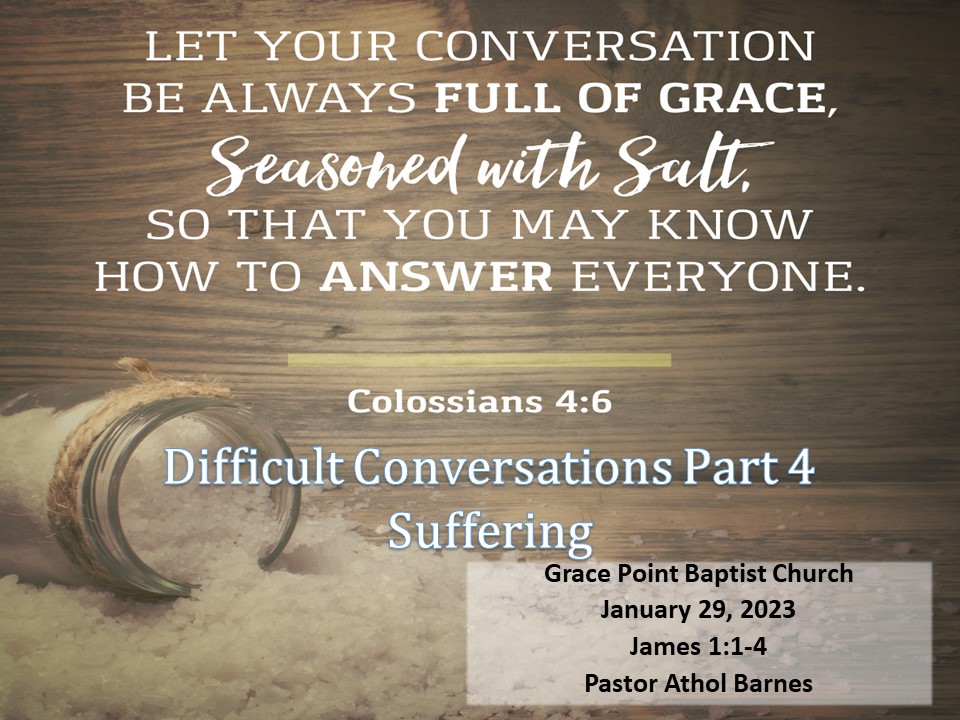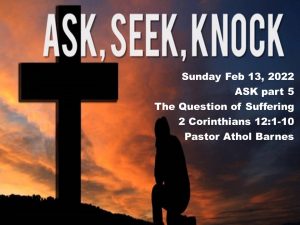
Recently I had the privilege of traveling with a team of missionaries to South Africa, taking the Gospel message to the public schools. The message was powerfully received and changed thousands of lives. The Gospel is incredibly powerful and yet seemingly simple to proclaim.
The Apostle Peter, writing to exiled Jewish believers, wrote the book of 1 Peter about the fact that suffering and persecution were a part of being identified as a follower of Jesus.
But the letter is not one of hopeless suffering, rather there is tremendous hope (Sse 1 Peter 1:7). Suffering is the refining fire that produces in the believer a faith that is more precious than gold, resulting in praise and glory when Jesus returns.
The Weight of Glory
But what is glory? Travis Hamm preached a great message on glory on New Years Eve (click on this link to view: https://youtu.be/hcidSSny1FY?si=hP1akziFHzVWHKb9).
Glory is something that possesses weight and significance. It can be defined only by pointing to something that is glorious. Something that is larger than we can grasp (See Isaiah 6:3 and Psalm 19:1). The Gospel is glorious; the Gospel is unfathomable.
1 Peter 1:8b says, “Though you do not now see him, you believe in him and rejoice with joy that is inexpressible and filled with glory.”
As we are empowered by the Holy Spirit, we see Jesus revealed in the Scriptures, and we believe in him. This belief leads to inexpressible joy. This is not a dead religion; this is joy through knowing Christ as our personal savior.
In this life there will be trials, but because of our relationship with Jesus we have an inheritance kept for us. We have the certainty of glory. When we love Jesus, our perspective of the trials of life change. We rejoice in him and are able to live a life filled with joy, even in times of suffering.
We are a forward-looking people, a people filled with hope and a certain salvation (See 1 Peter 1:9).
The Hope of Salvation
But what is salvation? What are we saved from?
The doctrine of hell is not often talked about; it makes us uncomfortable. But hell is a real place. Jesus spoke about hell more than anyone else in the Bible, and he describes it vividly. Jesus came to save us from hell.
Jesus didn’t come to make us better people, wealthy people, or influential people who had our act together. Jesus didn’t come so that we would have nice big churches and Christian ministries. Jesus came on a rescue mission to save us from our depravity. Hell is the default destination for everyone on the planet. That should make us very uncomfortable.
If we don’t grasp the reality of hell, we won’t appreciate the glory of the Gospel.
Without hell, there is no need for the Gospel, and there is no need for a savior.
We have a great salvation that was prophesied about for hundreds of years before Jesus was born (see 1 Peter 1:10-11). The Old Testament prophets saw the suffering of Christ (see Isaiah 53 and Psalm 22). The prophets also saw the future glory of King Jesus coming to establish his throne.
We live in the church age, the time between the suffering of Jesus and the return of Jesus, where we have the privilege of proclaiming the Good News to a dying world.
Peter is telling his readers that the Scriptures, the inspired word of God, inspired by the Spirit of Christ, all point to Christ—to his suffering and his glory.
The Power of the Gospel
In 1 Peter 1:12 we read that the Holy Spirit revealed to the ancient prophets that they were writing for future generations. There is a significant difference between our age and that of the Old Testament prophets; we are living in the age of the ministry of the Holy Spirit (see Romans 8:9).
That is why when we share the Gospel, and God empowers His word, there is an exhilaration and a joy inexpressible. There is no greater privilege than being a tool in the hand of the Almighty.
What an honor we have to declare the Gospel. The greatest message ever to be told.
If we have the privilege of declaring the Gospel, sometimes we will be called upon to embody the message of suffering leading to salvation. When this happens, we can suffer well because we have a future hope. This is sometimes the open book that God uses to declare the Gospel to a lost and suffering world.
Verse 12 ends with an interesting statement, “…things into which angels long to look.” This Gospel message is something that even the heavenly beings long to look into. We as the church have the privilege of having this message revealed to us by the Word of God through the Holy Spirit.
The Glory of the Gospel
I love to ask Christians, “What is the Gospel?”
Firstly, there is the “Sunday School” answer, and then there is the awe and wonder answer. The Gospel is so glorious, so weighty, that we can hardly begin to understand it.
The Gospel is so much more than we could possibly imagine. It touches every aspect of every life. There is no sinner outside of the reach of the Gospel. There is no suffering that the Gospel cannot turn into joy. There is no circumstance that is beyond the power of the Gospel.
We are privileged to be the ones to take this message to the world: what are we doing with this privilege?
Maybe today you need to begin declaring the Gospel, even through your suffering.
Maybe today you need to apply the Gospel to your life, your marriage, your family situation, and even your future.










